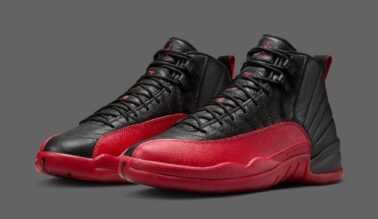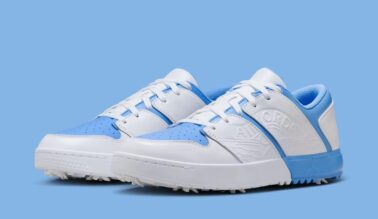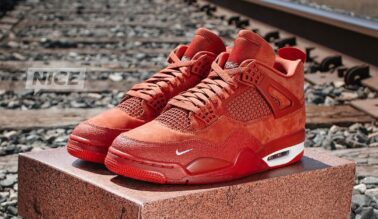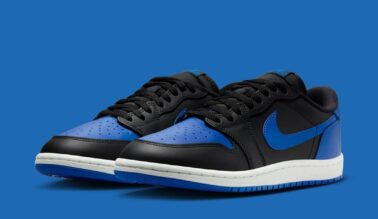This post may contain affiliate links. Please read our disclosure policy.
|
At one time, being chosen by a brand to have a signature line was the ultimate sign of accomplishment. Some of the greatest Hall of Famers didn’t hear of such a thing, but when Michael Jordan signed a deal with Nike in 1984, the game of signature sneaker forever changed. Instantly every brand was reaching to their top athletes to create a product that was co-labeled with a trusted logo and a marquee name. Basketball was THE sport footwear companies were after and getting a face to represent your logo was mandatory to make it in the competitive market. Adidas, Converse, Reebok, New Balance, Avia, LA Gear, and even KSwiss got their name into the NBA and NBA player’s names on their shoes. While some brands had their chosen one, players names began to become ubiquitous with the products they wore. For years, Charles Barkley played in the same Air Force basketball shoes many other players wore, but on the streets, they were known simply as the Barkleys. Slowly Nike added his jersey number to the shoes on heel tabs, added “CB” to the end of the product name, before eventually giving Sir Charles a full fledged line of products named after him. What once was the pinnacle, flagship model, today the signature sneaker is no longer. For years a brand would have only one or maybe two signature athletes in the NBA as the face of the brand, but soon brands learned that a signature line of product could become a beast of its own that would become stronger than their #2 competition. In 1997 Nike created the Jordan Brand franchise that had its own line of shoes and apparel, but also its own marketing, public relations, and product development divisions. Essentially, a new brand was formed and born from the success of a signature line. Within a couple years, Nike Basketball would have a total of 9 NBA and 1 WNBA Players with signature shoes. In today’s game, draft day is known by many as endorsement day. As names are called from the podium, contracts are filled out with deals from car companies, soft drinks, and of course footwear brands. Going high in the draft means many great things for these young players and for some, a signature sneaker deal. Consider this, from 2002-2005 draft classes 5 signature sneaker lines were born including 3 from 2003 alone. The 2003 draft class was recruited heavily by sneaker companies and signature shoe deals were inked with LeBron James (Nike Basketball), Carmelo Anthony (Jordan Brand), and Dwyane Wade (Converse). Lately, there has been some talk of how significant a signature sneaker is in the marketplace. While a product takes on all the positives of a player, the negatives come along with it. This couldn’t have been better illustrated when off court troubles for Kobe Bryant sent Nike scrambling to rename what would have been his first Nike signature shoe the Huarache 2k4. It would be another two years until Nike would try again with a Kobe Bryant signature sneaker that ultimately ended up on clearance outlet racks for as cheap as $19.99. Taking the safe route, many brands have opted to create “team” shoes that what would be signature caliber athletes collectively wear. For the 2006-07 season, Adidas Basketball had a large roster with six signature sneakers in the basketball category. The following year, the brand down sized to have two team shoes and one signature shoe worn by these same athletes and ended the six year run of the Adidas T-Mac. Last week when we reported the news that Dwyane Wade left Converse to join Jordan Brand, there were two responses we continued to receive. First was the rejoice of DWade joining JB and the second was asking if he would receive a signature shoe with Jordan Brand. Dwyane Wade is in many ways the biggest star and arguably the best player to play for Jordan Brand since the man himself. While many of us were told to debate between LeBron and Kobe for the MVP, DWade was busy having statistically the best year of his career with 30.2 points, 7.5 assists, and 5.0 boards a game in his first full season in three years. All of this came after the summer where he helped lead the US to gold including his incredible 27 point performance in the gold medal game. Oh yeah, and that NBA Finals MVP performance in 2006? Something along the lines of legendary. Much more than his accomplishes on court, the man Wade is off the court is just as honorable. Dwyane actively works with a handful of charities and philanthropic movements that help people of his hometown of Southside Chicago, Miami, and beyond. Last year on Christmas Eve, he even purchased a South Florida woman a new house when her nephew accidentally burned it down. Catching the attention of the game’s greatest, Michael Jordan recently stated, “In his short time in the league, Dwyane has transformed himself into one of the game’s best and is the embodiment of leadership both on and off the court, a signature trait of our athletes. As the Jordan franchise approaches its silver anniversary, Dwyane will become a pinnacle member of the Jordan roster poised to help lead the Brand for years to come.” Ultimately Jordan Brand has a major decision to make. Does the brand create a Dwayne Wade line of footwear under the Jordan Brand label like they have done with Carmelo Anthony and Chris Paul, or do they have Wade represent the brand’s marquee Air Jordan in PE colorways like they have done with Ray Allen and RIP Hamilton? Seeing that Dwyane Wade has accomplished a vast amount of accolades and is now arguably the best player on Jordan Brand, does he deserve a signature model? On the contrary, are signature sneakers important as they once were? Let us know what your thoughts on signature sneakers and if Wade is deservant of one. |



